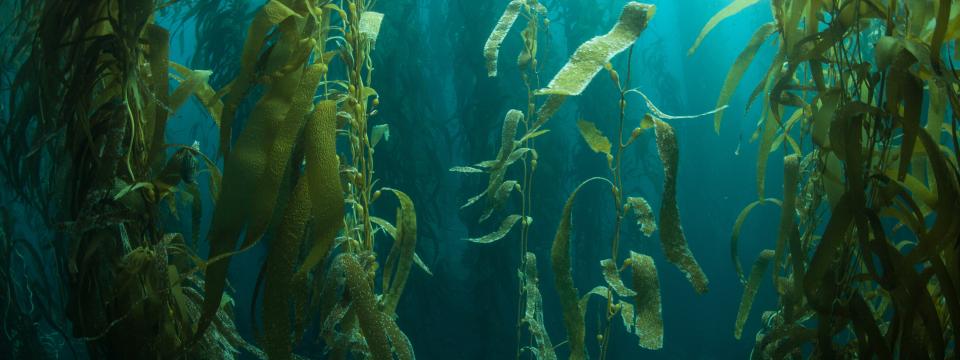This bibliography gathers publications over many years from a variety of researchers exploring topics of agency, directionality, and function (among others) with a special emphasis on CASP members. It began with work from teams within the initial Agency, Directionality and Function project and continues to be populated with papers and articles from diverse researchers looking to further develop and expand ways of working interdisciplinarily on the complex theme of teleology.
Included in the bibliography are entries for publications and books that many scholars involved in the Agency, Directionality and Function project recommended as foundational texts in their field of study. We welcome suggestions for additions to the bibliography from CASP members.
Agency and Autonomy
Russell, E.S. (1945). The Directiveness of Organic Activities. Cambridge (UK): Cambridge University Press.
Scott-Phillips, T.C., K.N. Laland, D.M. Shuker, T.E. Dickins and S.A. West. (2014). "The niche construction perspective: a critical appraisal." Evolution 68(5):1231–1243.
Sfara, E. (2023). From technique to normativity: the influence of Kant on Georges Canguilhem’s philosophy of life. History and Philosophy of the Life Sciences, 45(16).
Sterelny, K. and Calcott, B. (2011). The Major Transitions in Evolution Revisited. Cambridge (MA): The MIT Press.
Sultan, S. E., Moczek, A. P., & Walsh, D. (2022). Bridging the explanatory gaps: What can we learn from a biological agency perspective? BioEssays, 44(1), e2100185.
Sultan, S., Moczek, A. and Walsh, D. (2021). “What can we learn from a biological agency perspective?” BioEssays 44.
Szathmary, E. (2015). “Toward major transitions theory 2.0.” Proceedings of the National Academy of Sciences, United States of America 112:10104–10111.
Tantiwong, C., Dunster, J. L., Cavill, R., Tomlinson, M. G., Wierling, C., Heemskerk, J. W. M., & Gibbins, J. M. (2023). An agent-based approach for modelling and simulation of glycoprotein VI receptor diffusion, localisation and dimerisation in platelet lipid rafts. Scientific Reports, 13(1), 3906.
Turner, J.S. (2007).The Tinkerer’s Accomplice: How Design Emerges from Life Itself. Cambridge: Harvard University Press.
Uller, T. (2023). Agency, Goal Orientation, and Evolutionary Explanations. Evolution "On Purpose": Teleonomy in Living Systems. MIT Press.
Uller, T. and H. Helanterä. (2019). “Niche construction and conceptual change in evolutionary biology. The British Journal for Philosophy of Science 70:351–375.
Virenque, L., & Mossio, M. (2023). What is Agency? A View from Autonomy Theory. Biological Theory.
W. Schulz, A., & Robins, S. (2022). Episodic Memory, Simulated Future Planning, and their Evolution. Review of Philosophy and Psychology.
Walsh, D. (2015). Organisms, Agency and Evolution. Cambridge (UK): Cambridge University Press.
Walsh, D. (2022). Environment as Abstraction. Biological Theory, 17(1), 68–79.
Walsh, D. M., & Rupik, G. (2023). The agential perspective: Countermapping the modern synthesis. Evolution & Development, ede.12448.
Weber, A. and Varela, F. (2002). “Life after Kant: natural purposes and the autopoietic foundations of biological individuality.” Phenomenology and the Cognitive Sciences 1:97–125.
Woodger, J.H. (1929). Biological Principles. London: K. Paul, Trench and Trubner.
Causation in Development and Evolution
Smith, J.E.H., ed. (2006). The Problem of Animal Generation in Early Modern Philosophy. New York: Cambridge University Press.
Bourrat, P. (2022). Unifying heritability in evolutionary theory. Studies in History and Philosophy of Science, 91, 201–210.
Ågren, J. A. (2023). Pluralism and Progress in Evolutionary Biology: A Commentary on Distin. In T. E. Dickins & B. J. A. Dickins (Eds.), Evolutionary Biology: Contemporary and Historical Reflections Upon Core Theory (Vol. 6). Springer Nature.
Ågren, J. A. (2023). Why We Disagree About Selfish Genes: A Reply to Welch. In T. E. Dickins & B. J. A. Dickins (Eds.), Evolutionary Biology: Contemporary and Historical Reflections Upon Core Theory (Vol. 6, pp. 581–583). Springer International Publishing.
Ågren, J. A. (n.d.). Genes and Organisms in the Legacy of the Modern Synthesis. In T. E. Dickins & B. J. A. Dickins (Eds.), Evolutionary Biology: Contemporary and Historical Reflections Upon Core Theory (Vol. 6). Springer Nature.
Function and Teleology
Zammito, J. (2018). The Gestation of German Biology: Philosophy and Physiology from Stahl to Schelling. Chicago: University of Chicago Press.

